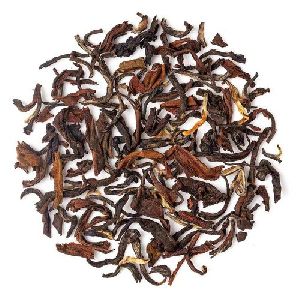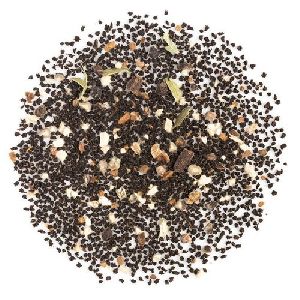Tea, beverage produced by steeping in freshly boiled water the young leaves and leaf buds of the tea plant, Camellia sinensis. All tea comes from the same basic plant, the Camellia Sinensis plant. Differences in tea arise from differences in geography, growing conditions, cultivars, and processing. With over 3,000 varieties, tea is the most consumed beverage in the world after water. Tea can be divided into six categories: black, dark (including puer), oolong, yellow, green and white. Tea, beverage produced by steeping in freshly boiled water the young leaves and leaf buds of the tea plant, Camellia sinensis. The first published account of methods of planting, processing, and drinking came in 350 CE.
In 1824 tea plants were discovered in the hills along the frontier between Burma and the Indian state of Assam. The British introduced tea culture into India in 1836 and into Ceylon (Sri Lanka) in 1867. At first they used seeds from China, but later seeds from the Assam plant were used. The Dutch East India Company carried the first consignment of China tea to Europe in 1610. In 1669 the English East India Company brought China tea from ports in Java to the London market. Later, teas grown on British estates in India and Ceylon reached Mincing Lane, the centre of the tea trade in London. By the late 19th and early 20th centuries, tea growing had spread to Russian Georgia, Sumatra, and Iran and extended to non-Asian countries such as Natal, Malaŵi, Uganda, Kenya, Congo, Tanzania, and Mozambique in Africa, to Argentina, Brazil, and Peru in South America, and to Queensland in Australia.
Teas are also classified by the size of the processed leaf. Traditional operations result in larger leafy grades and smaller broken grades. The leafy grades are flowery pekoe (FP), orange pekoe (OP), pekoe (P), pekoe souchong (PS), and souchong (S). The broken grades are: broken orange pekoe (BOP), broken pekoe (BP), BOP fanning, fannings, and dust. Broken grades usually have substantial contributions from the more tender shoots, while leafy grades come mainly from the tougher and maturer leaves. In modern commercial grading, 95 to 100 percent of production belongs to broken grades, whereas earlier a substantial quantity of leafy grades was produced. This shift has been caused by an increased demand for teas of smaller particle size, which produce a quick, strong brew.
Along the way, many wise and experienced tea experts shared their knowledge with us, so we try to take that same approach with others. We are huge believers in tea education and outreach. We have conducted feew tea tastings and workshops for our customers, and we have given talks and speeches about tea everywhere.
Read More »






